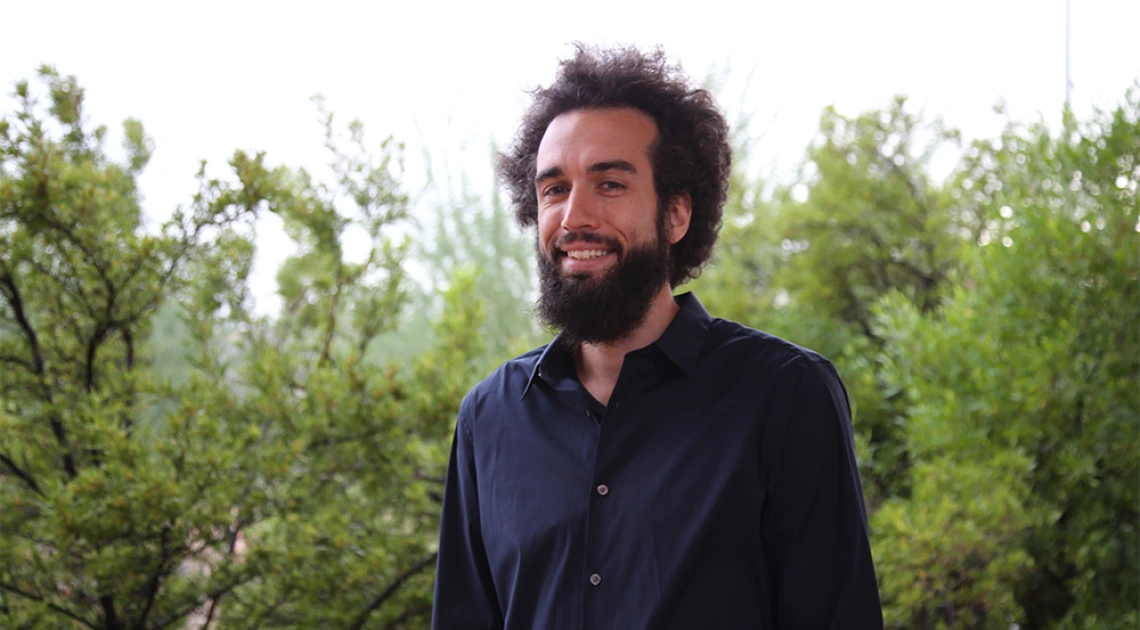Bringing a Global Perspective to the TLA Commercialization Network

Last month, Shane Reiser joined the Tech Launch Arizona team as the new Commercialization Network Manager focused on connecting UA IP-based startup companies with the people and resources they need to grow.
His background includes a mix of working in startup, corporate and non-profit environments. He cofounded Techpublic, a commercialization program that helps globally-operating corporations collaborate with mid-stage startups to solve core business challenges. His consulting firm, Your Ideas Are Terrible, has helped global corporations implement lean startup methods and build internal innovation culture since 2013. Before it was acquired by Techstars, Shane joined Startup Weekend in 2011 as the founding COO where he helped scale operations to hundreds of cities and trained thousands of organizers and facilitators. He has worked as CMO of two venture-backed startups: Dwolla and Kohort. Shane is also the founder of the Kauffman Foundation-backed Startup Genome non-profit, which did some of the earliest research and mapping of entrepreneurial ecosystems.
We had the opportunity to sit and chat with Shane for a few minutes about jumping into the work at TLA.
Q: What excites you most about working with TLA?
A: I’m most excited about working with the team. TLA has some heavy-hitters on staff and the organization itself is organized and focused. I see this as an opportunity to learn and develop personally. On the flip side, this is a chance to use my background to help grow the Tucson innovation ecosystem. I’ve been involved in startup community building initiatives since 2010, but mostly at a global level. Now that I’m in a place in which I plan to live for at least another 10 years, I can afford to think much more long term than ever before. I can’t find a better way to make that long-term impact in Tucson than applying myself to help TLA take their efforts to the next level.
Q: What opportunities do you see for Tucson’s technology startup community?
A: We have a lot going for ourselves here, but we don’t have everything. We need to help Tucson startups expand their global market reach faster and help local entrepreneurs get more deeply connected to the top ten global tech hubs. According to Startup Genome’s research, doing so will significantly increase their ability to grow revenue and attract top talent, which in turn better positions them to have an exit and at a higher valuation, thus increasing their economic contribution. I think all of that would be five times easier if Tucson built a global reputation for being a top city in two or three specific industries. I’d like to see the organizations in Tucson that support startups focus their programming on areas like life sciences, optical science, renewable energy, sustainability, agriculture, and health and wellness. If they were to do that, I think the organizations themselves would attract higher quality startups from both within the region and across North America, raise more funding to grow their operations and ultimately have a greater impact.
Q: How do you plan to grow and engage TLA’s network of mentors and partners both here in Tucson and around the world?
A: In two words, bigger and stickier.
It has to begin with the human touch. My predecessor Eric Smith [now the executive director of the UA Center for Innovation] understood that and was able to build a great network and make a lot of valuable connections because of it. I’ll continue his legacy in that respect. I’d like to more effectively personalize the way each member of the network engages with TLA - something I’ve wanted when I’ve been a member of similar groups in the past. To achieve that, I’m building a more robust database that will allow me to make smarter matches. Then, as I grow the network, I’ll be looking for opportunities to make it more diverse in terms of everything from industry to skills, from geography to ethnicity, and from age to gender.
Q: What are your immediate goals for leveraging the network to advance UA startups? And long-term?
A: My first goal is to meet inventors and entrepreneurs across the University, ask good questions, listen actively and seek to deeply understand what they need on their paths to commercializing their inventions. Long term, I see some great opportunities for TLA. I think the University as a whole could benefit from being more connected to the local community, and TLA has the chance to be a leader driving that change. TLA is already involved in contributing to the national and global conversation about university technology commercialization, so I look forward to listening in on that expertise, but also adding my own perspective into the ecosystem. I have a hunch that applying a few tricks from my Startup Weekend and corporate innovation days to the way TLA identifies and supports teams and technologies could add more the front end of TLA’s funnel and ultimately increase our downstream impact.

